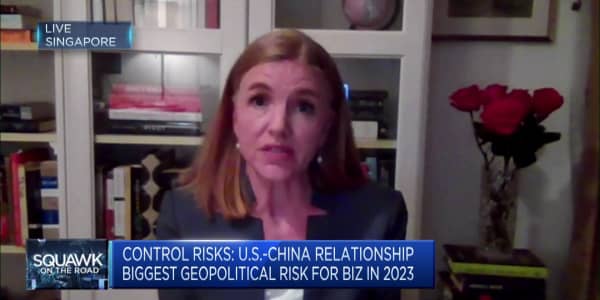Over 10 percent of countries are increasingly vulnerable to "global risks" like terrorism, pandemics and climate change, according to a report published by Maplecroft on Thursday.
(Read more: The biggest global risks in 2014)
The risk consultancy firm studied 179 countries, and found that around 10 percent were more at risk from "global risks" than in 2012. The majority of these countries were in Sub-Saharan Africa or East Africa, including Mali, Guinea, Madagascar, Mozambique and Tanzania.
In its report on the subject, Maplecroft used 36 risk indices to identify emerging business-related risks like infectious disease, macroeconomic risk and resource insecurity. It also analyzed a country's resilience — its ability to bounce back from a shock at the government and societal level.
Business risks
Increases in a country's exposure to global risks and shocks have important implications for the business environment. While these risks post immediate operational challenges for investors, they also erode a country's resilience and thus its ability to adapt to risks and crises.
While investors are increasingly turning their attention to frontier economies such as Nigeria or Myanmar, rising vulnerability to global risks could dampen potential investment returns.
(Read more: Stand by: EM turmoil sparks credit crunch fears)
Maplecroft identified 30 "growth markets" based on their economic potential, but warned that 40 percent of them were categorized as "high risk". These included China and India in Asia and Nigeria and Tanzania in Africa.
"As the importance of these countries to the world economy increases, shocks — such as severe storms — stand to have an amplified impact on supply chains and business operations," Maplecroft said in its report.
(Read more: A storm's coming…and these cities should watch out)
It sounded a cautious note on Nigeria, which is widely tipped to be the next growth hot spot.
"A significant decline in the rule of law in Nigeria is combining with an 'extreme risk' of corruption and a burgeoning illicit economy," Maplecroft said. "As a result, the country, which also contends with very high levels of poverty and growing political violence, is even less equipped to deal with its high levels of exposure to 'global risks'."
Investors are also increasingly looking to tap into Sub-Saharan Africa, where gross domestic product (GDP) is forecast to grow 5.3 percent in 2014, according to the World Bank. Yet, nearly 75 percent of the countries that have seen a significant increase in risk over the past three years are located in the region, according to Maplecroft. Conflict, climate change, pandemics, food and water supply and energy security are among the risks that could stifle its stellar growth.
(Read more: Steady oil market at risk from sabotage, instability)
"While investors are eager to enter and expand into sub-Saharan Africa's growing markets, the continent's potential hinges on establishing confidence that the government is sufficiently robust and accountable," said Charles Laurie, head of Maplecroft's Africa practice.




